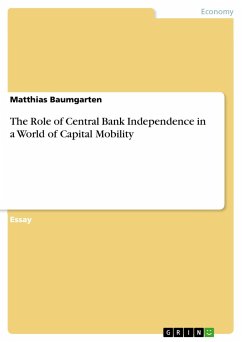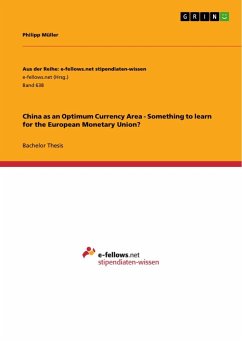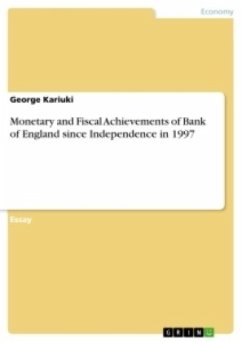Essay from the year 2011 in the subject Economics - Finance, grade: 1,0 (80%), University of Warwick (Politics and International Studies), course: Politics of Global Finance, language: English, abstract: Historical developments during recent economic history have demonstrated a remarkably parallel development of international capital mobility (ICM) and central bank independence (CBI), making both fundamental factors of today's monetary system. Neoliberal economic models depict the anti-inflationary credibility associated with CBI as the outcome of strict market rules, insulating policy from political control. The structural power of mobile capital subsequently forced governments to adopt it as policy. However, the theoretical assumptions underlying these arguments misrepresent current realities and obscure the fact that credibility is a social phenomenon. Looking at CBI as a social institution shows that it facilitates a consensus between current political and market interests. For financial market actors, CBI functions as a guide for their intersubjective expectations and ensures the continuity of the current economic order with the financial markets at its centre. Governments consciously support the embedding of society within these markets, while shielding themselves from the reputational costs of adverse market outcomes. Within this consensus, substantial indirect state control over policy decisions remains. Consequently, CBI's central importance does not lie in anti-inflationary credibility derived from the removal of political control, but in its institutional role as a link between political and market interests in contemporary financial governance.
Hinweis: Dieser Artikel kann nur an eine deutsche Lieferadresse ausgeliefert werden.
Hinweis: Dieser Artikel kann nur an eine deutsche Lieferadresse ausgeliefert werden.








